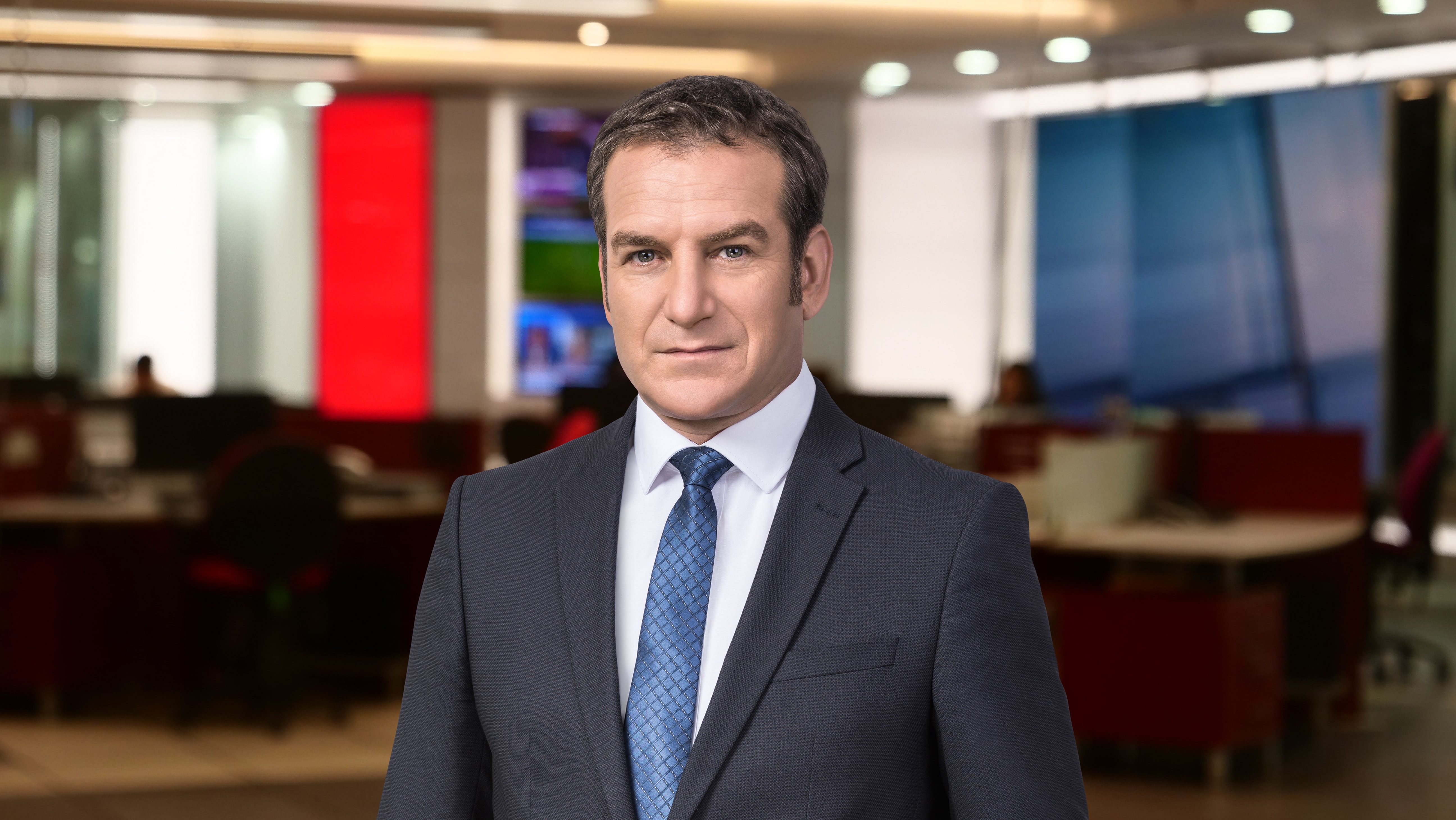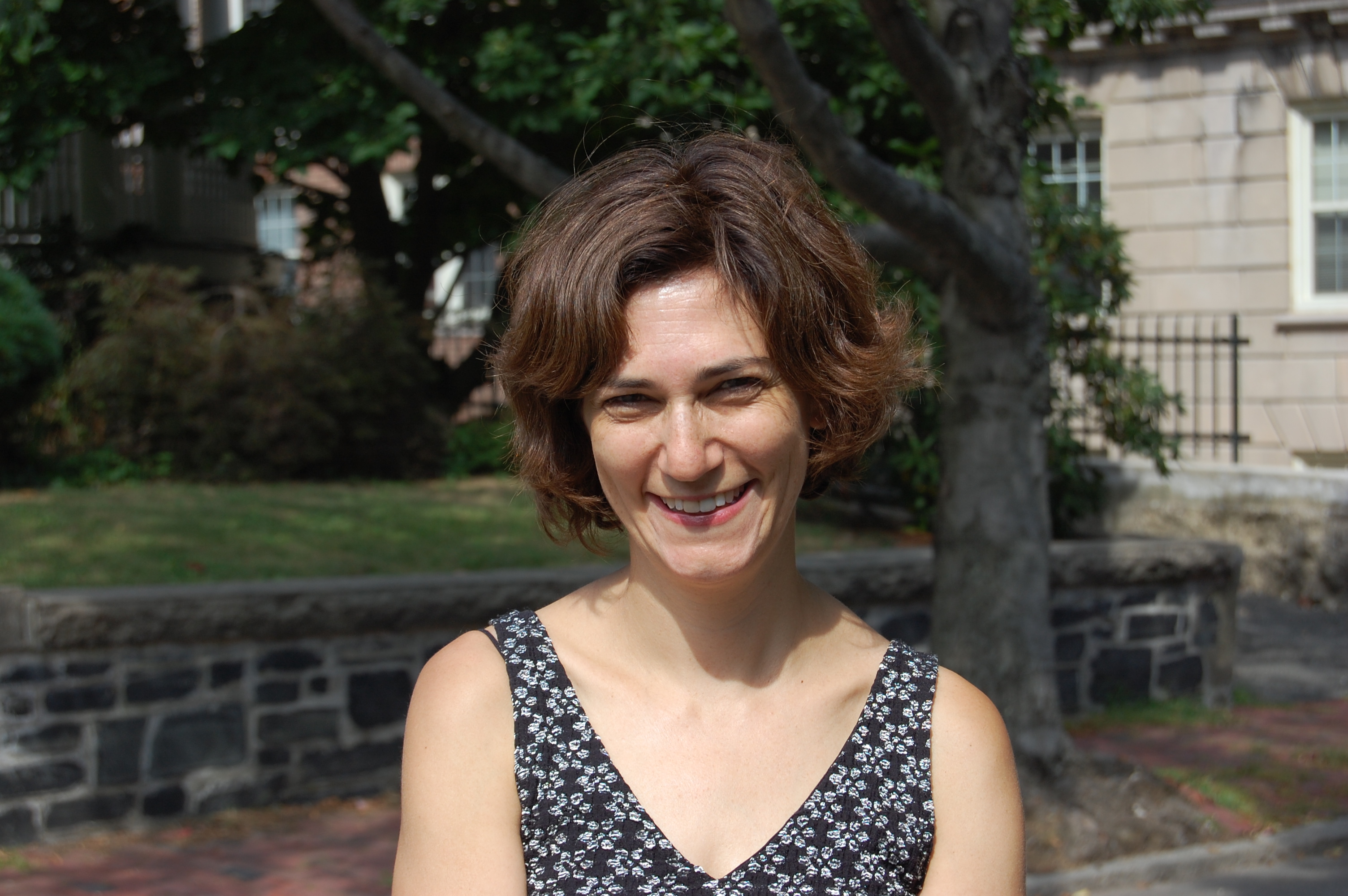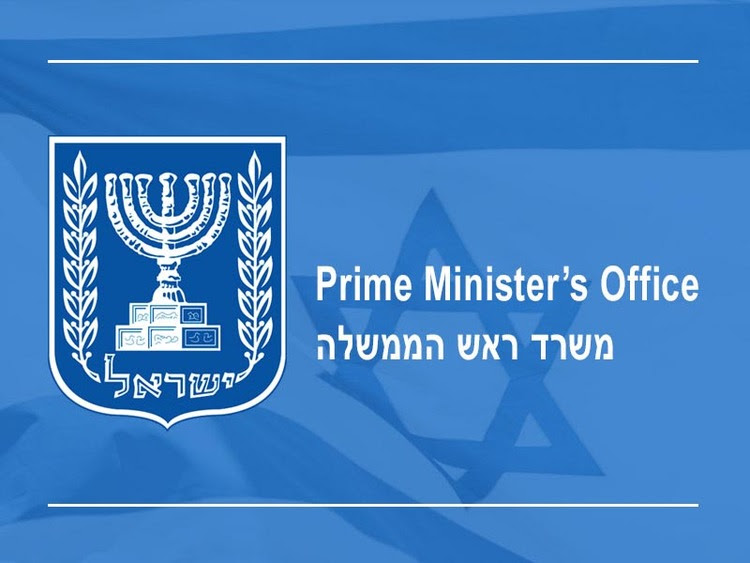- Details
- Written by Silvia G. Golan

(Jerusalem, May 6, 2020)—B’nai B’rith International has announced the winners of the 2020 B’nai B’rith World Center-Jerusalem Award for Journalism Recognizing Excellence in Diaspora Reportage: Branu Tegene and Danny Kushmaro of Channel 12 News and Haaretz correspondent Dina Kraft.
Tegene, a correspondent for Channel 12 news, and news anchor Kushmaro will receive the award in the broadcast media category in memory of Wolf and Hilda Matsdorf for a 5-part series entitled "Mefotzalim" (Split Up: The Story of the Ethiopian Jewish Community) that follows the lives of Jewish Ethiopians left behind after the community's mass immigration to Israel, members of their family in Israel and their reunion in Ethiopia (link here) . Kraft will receive the award for print media in memory of Luis and Trudi Schydlowsky for articles on Jewish communities in the United States and Great Britain (The Pittsburgh Playbook; How a Community Began to Heal ; The Status of Anti-Semitism in Contemporary America and Britain.)

B’nai B’rith World Center-Jerusalem Chairman Haim Katz and Director Alan Schneider noted that "Even in the trying times when Israel and Jewish communities around the world are focused on facing the medical, social and economic fallout of the coronavirus epidemic, efforts must continue to maintain and strengthen the relationship between Israel and Diaspora communities around the world. The B'nai B'rith World Center-Jerusalem remains dedicated to that mission through the Award for Journalism and other significant programs that have been adapted to fit our new reality".
Since its establishment in 1992, the B’nai B’rith World Center Award for Journalism has recognized excellence in reporting on contemporary Diaspora Jewish communities and on the state of Israel-Diaspora relations in the Israeli print, broadcast and online media. The award is widely recognized as the most prestigious prize in the Israeli media industry for Diaspora reportage and was established to help strengthen the relationship between Israel and the Diaspora. The award highlights the important contributions the media can make toward strengthening the relationship between Israel and world Jewry by encouraging quality reporting on Diaspora communities and Israel-Diaspora relations.

The distinguished members of the award jury are: Ya'akov Ahimeir, past editor and anchor, Israel Public Broadcasting Corporation and Lifetime Achievement Award winner for 2016; Professor Yehudith Auerbach, School of Communication, Bar Ilan University; Professor Sergio DellaPergola, The Institute of Contemporary Jewry, Hebrew University; Sallai Meridor, former Israeli ambassador to the United States and former chairman of the Zionist Executive and Jewish Agency for Israel; Professor Gabriela Shalev, Higher Academic Council, Ono Academic College and former Israeli ambassador to the United Nations; journalist Yair Sheleg; Asher Weill, publisher and editor of “Ariel” The Israel Review of Arts and Letters (1981-2003).
The Awards are presented in memory of the late Wolf Matsdorf, editor of the World Center-Jerusalem’s journal “Leadership Briefing” and a journalist in Israel and Australia, and his wife Hilda, a pioneer in social work in both Australia and Israel, and in memory of Luis and Trudi Schydlowsky. The award is made possible through donations from the Matsdorf family and B’nai B’rith World Center-Jerusalem board member Daniel Schydlowsky.
B’nai B’rith International has advocated for global Jewry and championed the cause of human rights since 1843. B’nai B’rith is recognized as a vital voice in promoting Jewish unity and continuity, a staunch defender of the State of Israel, a tireless advocate on behalf of senior citizens and a leader in disaster relief. With a presence around the world, we are the Global Voice of the Jewish Community. Visit www.bnaibrith.org
Photo Courtesy: Channel 12 news (Branu Tegene and Danny Kushmaro) and Dina Kraft (Dina Kraft).
- Details
- Written by Prime Minister's Office and the Health Ministry

Joint Prime Minister’s Office and Health Ministry Statement
(Communicated by the Prime Minister's Office and the Health Ministry)
The Cabinet, last night (Monday, 4 May 2020), approved a series of additional amendments to the emergency regulations that will allow the economy to return to activity in the shadow of the coronavirus. The amendments cancel restrictions on leaving one’s home except to places and activities that are prohibited in the regulations.
Following are the main points of “Emergency Regulations (New Coronavirus – Restriction of Activity)”:
* From yesterday (4 May 2020), additional businesses and activities will be allowed to open including: Libraries, all kinds of non-medical treatment on the human body, complementary medicine, hotels and guest houses, nature reserves, heritage sites, national parks, zoos and safaris. Activity at swimming pools will be permitted for competitive athletes and therapy.
* Malls, open-air markets and gyms will be allowed to open on 7 May 2020.
Mall operators will be required to meet the rules for maintaining public health and will sign an on-line form to this effect on the Economy and Industry Ministry website; the form will be passed on to the relevant local authority. Under these rules, an employee will be appointed responsible for carrying out activity to maintain public health at the mall. The entry of people to the mall – including mall employees – will be regulated so that at no time will there be more than one person per 20 square meters in the mall. A sign will be posted regarding the number of people permitted in the mall. Strict care will be taken to maintain two meters’ distance between people in the mall including in lines. Places for those waiting in line will be delineated; signs will be posted about maintaining distance. The rules of hygiene – including disinfection of surfaces – will be strictly maintained. Accessible stands with hand disinfectant will be placed in the mall. Sitting for the purpose of eating will not be permitted in the mall.
Retail markets will be allowed to open upon receiving a permit from the local authority and pursuant to the following conditions: The local authority will regulate the entry of people to the market, including workers and business owners, so that at no time will there be more than one person in the open area per 20 square meters of space. The local authority will set and implement a mechanism to limit the number of people in the market. A sign will be posted regarding the number of people permitted in the market. The local authority will take maximum care vis-à-vis maintaining two meters’ distance between people in the market including in lines, in order to prevent crowding. Places for those waiting in line will be delineated; signs will be posted about maintaining distance. The rules of hygiene – including disinfection of surfaces – will be strictly maintained. Accessible stands with hand disinfectant will be placed in the market. The authority will not allow sitting for the purpose of eating in the market will not permit the entry of people not wearing masks to the market.
* Those operating libraries will be required to observe additional conditions including the placing of partitions at the borrowing desk to prevent the transfer of respiratory droplets and the separation of books that have been returned to the library for three days.
* Those operating stores and businesses for non-medical treatment will be allowed to bring in customers according to the ratio of one customer per 15 square meters of space open to customers, or two people per cash register, whichever is higher.
* Going to beaches is prohibited except for sport activity in the sea.
* The restriction on praying more than 500 meters from the home or workplace is cancelled; the restriction of no more than 19 people for prayers in an open space remains in force.
* Circumcisions may be held with up to 19 people (as opposed to ten) in attendance.
* In public places and at workplaces, buildings of more than five stories may have up to 50% of the maximum allowed occupancy in elevators, thus allowing more than two people in any given elevator.
* Mental health treatment is allowed without masks, provided a distance of three meters is maintained between care provider and care recipient.
* Alongside the existing restrictions on activity at mikvaot [plural] (up to three men at mikvaot for men and advance appointments at mikvaot for women), a person appointed by the operator will be responsible to see that the rules are maintained.
* Regarding restrictions in Muslim-majority communities, the emergency regulation barring stores and businesses from opening between 19:30 and 03:00 is extended until Sunday, 10 May 2020.
The foregoing amendments shall be valid until Monday, 18 May 2020.
Emergency Regulations (Restricted Zones):
The Cabinet approved extension of “Emergency Regulations (Restricted Zones)” until Tuesday, 2 June 2020. The relevant ministerial committee will be able to declare communities, or sections of communities, in which there have been coronavirus outbreaks, to be restricted zones.
Extension of the authorization of the Israel Security Agency (ISA) to assist in the national effort to reduce the spread of the coronavirus and the advancement of legislation:
The Cabinet decided to extend the validity of the authorization of the ISA to assist in the national effort to reduce the spread of the coronavirus until Tuesday, 16 June 2020, or until completion of the legislative process and the entry into effect of the legislation. The decision will be submitted to the Knesset Foreign Affairs and Defense Committee for approval.
The Health Ministry calls on the public to continue listening to the directives on physical distancing, wearing masks and maintaining hygiene, in order to ensure public health and continue the common struggle against the spread of the coronavirus.
- Details
- Written by Hadassah Medical Organization

We have the great pleasure to invite you to the next Hadassah International Special Webinar when Prof. Zeev Rotstein, Director General of the Hadassah Medical Organization (HMO) in which he will share with us his vision for how Hadassah, Israel and the World will move through the COVID-19 pandemic.
Prof. Rotstein has been a pioneer Public Health leader since the beginning of this crisis. His role as the Director General of HMO has been critical in proposing and implementing alternative solutions to the way COVID-19 has been dealt.
The webinar will take place on Monday, May 4th, 2020 from 10 am EDT / 5 pm Israel time.
THIS EVENT WILL ALSO FUNCTION AS A PRESS CONFERENCE SO WE ENCOURAGE YOU TO INVITE YOUR LOCAL AND INTERNATIONAL PRESS.
We would also like to ask you to share this particular opportunity with HI units and HWZOA, board members, presidents, donors, sympathizers, and friends.
Be advised that participants must register in advance by clicking on the picture on the side, or CLICKING HERE. The Zoom link and dial-in numbers will be provided after registration.
Important: We will leave time at the end of the call for questions. It’s a challenge to facilitate these types of calls, with participants from all over the world, and the only method for ensuring a smooth process is to gather registrations and engage an outside firm to manage the call overall as well as the Q&A session.
Looking forward to your participation at our webinar.
Wishing everybody Yom Ha'atzmaut Sameach / Happy Independence Day!
Prof. Zeev Rotstein joined the Hadassah Medical Organization as the Director General after a long and distinguished career at the Chaim Sheba Medical Center at Tel Hashomer, where he began as a senior cardiologist in 1977 and served as its Director General from 2004-2016. He was the Director of Sheba's Acute Care Hospital from 1999 to 2004 and its Deputy Director from 1988 to 1999.
Born in Haifa, Prof. Rotstein graduated from the Sackler School of Medicine at Tel Aviv University where he continued on to do his internship and residency in the Chaim Sheba Medical Heart Institute. He received his Masters of Health Administration (MHA) from the Leon Recanti Graduate School of Business Administration at Tel Aviv University and was certified by the Israel Ministry of Health as a specialist in Health Systems Management. Additionally, he has held fellowships at the New York Department of Health, Tufts University and Johns Hopkins Medical Center School of Hygiene and Public Health.
Prof. Rotstein is a highly sought-after lecturer having taught at Bar Ilan University, Tel Aviv University and The Academic Center for Law and Science, where he continues to coordinate and teach courses in the Health Systems Management program. As an academician, Prof. Rotstein is an Associate Clinical Professor who has published more than 100 articles in peer-reviewed journals. See a selected list of his publications attached.
Prof. Rotstein is a member of numerous professional societies and organizations including the Israel Heart Society, the European Heart Society and the Israel Association of Hospital Managers. Both in Israel and internationally, Prof. Rotstein is considered an expert in Health Systems Management and the Planning and Construction of Hospitals. He has been involved in projects across the world including in Italy, Equatorial Guinea and Ghana. In Skolkovo, Moscow Prof. Rotstein was involved in planning, designing and operating the first phase Clinic and Diagnostics Building and is now involved in planning and designing the second phase – 100-bed inpatient Oncology Hospital.
In June 2016, Prof. Rotstein was named an Honorary Fellow of the Interdisciplinary Center Herzliya (Israel) in recognition of his creativity, persistence and significant contribution to public health in Israel, to medical research and to medical education. In May 2017, the University of Nicosia conferred the degree of Doctor of Science, Honoris Causa upon Prof. Rotstein, for his outstanding contribution to science, education and patient care. In 2020 Prof. Rotstein heads the prestigious National Committee that determines what medications are included in the “basket” Israeli physicians can prescribe without extra cost for patients.
Prof. Zeev Rotstein brings to Hadassah Medical Organization a combination of healthcare management and consultancy experience, academic excellence, and care as a physician.
TOGETHER we live
www.hadassah-global-response.org
www.hadassah-international.org
Hadassah International 2019 Yearly Review:
Hadassah International – Mission Without Borders
www.facebook.com/hadassahinternational
- Details
- Written by Israel Ministry of Defense

Ministry of Defense Spokesperson’s Statement on Behalf of the Israel Institute for Biological Research
In the past two days, the Israel Institute for Biological Research (IIBR), has completed a groundbreaking scientific development, determining an antibody that neutralizes the corona virus (SARS-COV-2).
This scientific breakthrough has three key parameters:
The antibody is monoclonal, new and refined, and contains an exceptionally low proportion of harmful proteins
The institute has demonstrated the ability of the antibody to neutralize the corona virus
The antibody was specifically tested on the aggressive corona virus
Based on comprehensive scientific publications from around the globe, it appears that the IIBR is the first institution to achieve a scientific breakthrough that meets all three of the aforementioned parameters simultaneously. This is the result of the institute’s great experience and the unique capabilities of its scientists.
The IIBR is currently pursuing a patent for its development, after which it will contact international manufactures.
It should be emphasized that this scientific achievement has the potential to progress towards a treatment for corona patients, and that it is not a vaccine for wide use. This is an important milestone, which will be followed by a series of complex tests and a process of regulatory approvals. This being said, the scientists at the institute believe that the nature of this breakthrough could lead to a shortening of the process, which could span over several months.
https://iibr.gov.il/Pages/home.aspx
The Israel Institute for Biological Research History
The Israel Institute for Biological research (IIBR) was established in 1952 as a governmental research institute, founded by a group of scientists from the IDF Science Corps and from academic organizations.
IIBR is located in the small city of Ness Ziona.
Over the years the Institute has been engaged in R&D in the fields of biology, chemistry, and environmental sciences in order to provide the State of Israel with scientific response to chemical and biological threats.
Alongside this specialized activity, IIBR scientists contributed to the development of a vaccine for polio (1959); developed kits for the detection of explosive materials (1980); developed of a brand name drug against Sjogren syndrome (1984) marketed all over the world and is one of four brand name drugs developed in Israel.
In 1991, a governmental company, Life Sciences Research Israel (LSRI), was established alongside the Institute and serves as its business and marketing arm.
Since 1992 a unique, a laboratory for the nationwide diagnosis of diseases caused by the bacteria Rickettsia, Ehrlichia and Leptospira was established in IIBR. Since 1995, the Institute has operated as a government-affiliated unit that research all areas of defense against chemical and biological weapons, including the operation of national laboratories for detection and identification of such threats.
- Details
- Written by Prime Minister's Office, the Health Ministry and the Finance Ministry

Cabinet Approves Emergency Regulations on an Additional Easing of Restrictions Designed to Gradually Restore the Israeli Economy to a Careful Routine in the Shadow of the Coronavirus
(Communicated by the Prime Minister's Office, the Health Ministry and the Finance Ministry)
The Cabinet approved (Friday, 24 April 2020), emergency regulations to further ease restrictions in order to gradually restore the Israeli economy to a careful routine in the shadow of the coronavirus. The regulations will take effect at midnight tomorrow (between Saturday, 25 April 2020, and Sunday, 26 April 2020).
The regulations are valid until Sunday, 3 May 2020. Measures to further ease restrictions after this date will be evaluated as per the continued decline in morbidity.
A) Emergency Regulations (Restriction of Activity – Amendment)
The regulations permit the sale of food by restaurants for take-away (no seating); the opening of hair salons, beauty parlors and cosmeticians including laser hair removal; and the opening of stores in the public sphere except for enclosed malls. It was also agreed that care providers may work with individuals, or with people living in the same household, without contact, while maintaining a distance of two meters among those being cared for, and wearing masks and using disinfectants.
Activity of the foregoing businesses will be subject to the conditions about maintaining public health, as determined in the regulations.
It was also determined at the meeting that the wearing of masks shall be mandatory also in the public sphere, starting from age seven, except for those engaged in sport or anyone who has a medical reason and certification to this effect. Fines shall be levied for violating the requirement to wear masks from the first offense.
It was also decided that local authority inspectors will carry out significant enforcement and monitoring so that businesses meet these conditions given concerns of a sharp increase in the number of verified cases, expansion of the chain of infection and new waves of outbreak of the coronavirus in Israel.
The detailed regulations are as follows:
1. In addition to deliveries, food outlets may offer take-away service.
The required rules for maintaining public health at restaurants are as follows: No seating at the food outlet. There will be a partition at the counter to prevent the transfer of droplets between seller and customer. Employers will schedule groups of workers in permanent shifts. Two meters' distance will be maintained among those present. The rules of hygiene, including the disinfection of surfaces, will be strictly maintained. Restaurant employees will wear masks and gloves. Entry will be regulated so that no more than two customers per active cash register will be present in a store of over 100 square meters; no more than four customers will be at any cash register. A sign will be posted regarding the maintaining of distance between people and the number of customers permitted in the food outlet.
2. All stores in the public sphere will be permitted to open except for malls, which shall remain closed.
The opening of stores will be conditional on strict maintenance of the following rules: Before opening the store, business/store owners will submit to their local authority a signed declaration according to which the detailed conditions will be met. The owner or operator of the store will – to the extent possible – provide for taking the temperature of people entering the store and will question them regarding symptoms of illness. The owner will schedule groups of workers in separate shifts. An employee responsible for coronavirus matters will be appointed. Partitions to prevent the transfer of droplets between sellers and customers shall be installed. The operator of the place will see to it that the rules of hygiene, including the disinfection of surfaces, are strictly maintained. A distance of at least two meters between people in the store shall be maintained. Care will be taken to prevent people from congregating at the entrance to the sore. Places for customers to stand in line at cash registers shall be delineated in order to maintain the distance between people; a sign to this effect shall be prominently posted. Entry to the store will be regulated so that no more than two customers per active cash register will be present; in a store of over 100 square meters, no more than four customers will be at any cash register. A sign will be posted regarding the maintaining of distance between people and the number of permitted customers. The operator of the place will determine and operate a system to limit [the number of] people entering the store.
3. Hair salons, beauty parlors and cosmeticians shall be permitted to open.
Hair salons will work according to the following rules: Business owners will submit to their local authority a declaration that the conditions are being met. The owner of the business will – to the extent possible – provide for taking the temperature of people entering the business and will question them regarding symptoms of illness. The owner will schedule groups of workers in separate shifts. The rules of hygiene – including, the disinfection of surfaces, tools, the chair and the laundering of towels and smocks, between customers – will be strictly maintained. During treatment of customers, hair salon employees will wear gloves that will be changed between customers. Masks and faceguards will be worn in addition to eyeguards. A distance of two meters will be maintained between people in the salon; a sign will to this effect shall be posted. The entry of customers to the salon will be regulated so that no more than two customers per hairdresser will be in the salon at any time. No more than four customers overall shall be in the salon at any time, six customers in salons over 75 square meters, and eight customers in salons of over 100 square meters. A sign will be prominently posted regarding he aforesaid numbers. A system will be determined to limit [the number of] people entering the salon.
4. Enforcement of the directives shall be stepped up.
In order to strictly maintain the rules set forth in the regulations and maintain public health, enforcement will be stepped up so that inspectors who have been duly authorized by the Director of the Nature and Parks Authority shall be added to the list of authorized personnel. Inspectors in local authorities shall be authorized to enforce the rules set forth in the regulations including enforcement in stores that store owners not allow in any person not wearing a mask.
Businesses that violate the rules shall be subject to a NIS 2,000 fine.
The Health Ministry calls on the public to continue maintaining the directives and instructions set forth in the regulations. The partnership of the public will allow the continuation of routine in the shadow of the coronavirus.
B) The Cabinet approved the NIS 8 billion extended assistance plan for the self-employed and small businesses:
1. Grant for regular expenses for small businesses – NIS 5.2 billion
A designated grant for small businesses (turnover of NIS 20 million), the sales turnover of which has been significantly hurt in March-April as a result of the economic effects of the spread of the coronavirus, in order to assist in covering regular expenses. The grant will also be given to non-profit associations that are defined as eligible public institutions. The grant may be up to NIS 400,000 depending on the degree to which activity has declined. The grant will be paid by the Tax Authority beginning in May.
2. Designated assistance stipend for the self-employed – NIS 2.8 billion
In continuation of the first installment, which was paid in April, a designated assistance grant will be paid to the self-employed the scope of whose activity has declined by at least 25% in March-June. The grant, which will be paid directly to bank accounts, will be 70% of their average regular income, up to NIS 10,500. This group also includes wage-earners with controlling interests. It will be possible to apply for the grant via the Tax Authority starting in the first week of May.
C) Readiness of the Public Sector for Work on an Emergency Footing during the Coronavirus Crisis (Amendment)
Due to the extension of the validity of restrictions on the economy as a whole and in order to increase the scope of service to the public while maintaining the health of workers, the Cabinet has instructed the public sector to prepare for the application of the purple badge standard. Agencies at government ministries and in the public sector will evaluate the preparation of work spaces in accordance with the health directives in order to allow more employees to go to their places of work.
D) The Cabinet approved a detailed assistance plan for the economy in dealing with the coronavirus crisis.
As determined in the basic law, yesterday evening the Finance Minister submitted to the Cabinet a detailed plan on assistance expenditures to the economy in 2020. It is anticipated that expenditures due to the coronavirus in 2020 will amount to over NIS 50 billion. The overall economic plan amounts to NIS 80 billion. It will be recalled that the economic assistance plan includes four layers: Immediate response (health and civil), a social safety net, assistance for the continuation of businesses, and acceleration. The portion that was approved includes components from all four layers.
The plan includes – inter alia – approximately NIS 10 billion to the Health Ministry, approximately NIS 3.8 billion to the self-employed, NIS 2.3 billion for Passover grants, NIS 2.5 billion for credit solutions, NIS 2.6 billion for property tax discounts for businesses and NIS 0.2 billion for improving service to citizens via digitization.
Following approval by the Cabinet, the plan will be tabled in the Knesset. Changes in the plan greater than 15% will be subject to approval by the Knesset Finance Committee.
E) The Cabinet approved the Finance Ministry proposal to continue providing adjustment stipends to people 67 and over who have lost jobs as a result of the coronavirus crisis.
Pursuant to the foregoing, it was decided to approve an additional stipend for May of up to NIS 4,000 for those who have been dismissed in previous months.








